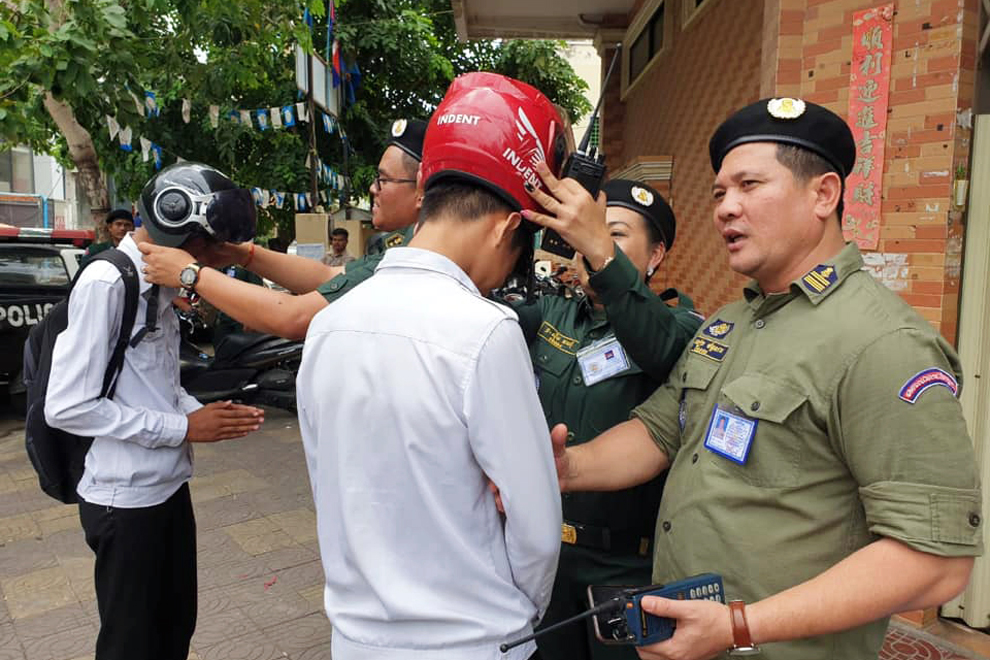
A police officer places a helmet onto a rider caught riding his motorcycle without one. Photo supplied
In the past week, traffic police have stopped almost 20,000 motorbike riders and passengers nationwide and instructed them to wear helmets, data released by the National Road Safety Committee said.
The campaign to clamp down on the failure to wear helmets was launched across the whole country on July 22 as part of a policy of stricter enforcement of road traffic laws. It is set to continue until August 22.
National Road Safety Committee secretary-general Him Yan announced before the crackdown that any motorbike rider or passenger caught not wearing a helmet would be required to purchase one in front of the authorities before they were allowed to continue travelling.
“During the past week, nearly 20,000 motorbike riders and passengers were forced by traffic police to find and wear helmets.
“Motorbike riders are required to obtain a helmet before they are allowed to leave, and they need to have a clear understanding of the traffic laws,” Yan said.
Institute for Road Safety acting director Kong Ratanak said: “Wearing a helmet won’t prevent people from being in a traffic accident, but it will reduce the risk of head injury if an accident happens.
“To reduce road traffic accidents, all riders and pedestrians must clearly understand the traffic laws, and law enforcement officers must carry out their work more effectively, efficiently and transparently.
“The decision to wear a helmet should not to be based on the fear of being fined or reprimanded by the traffic police . . . it is for everyone’s safety. It’s about reducing the risk of head injuries when accidents happen.”
Ratanak said that road safety research showed 70 per cent of traffic accident fatalities in Cambodia were caused by serious head juries, and most people who died in motorbike crashes were not wearing a helmet.
Kong Vanna, who works for the Ministry of Rural Development in educating people in the countryside about traffic safety, said if the current campaign only lasted a short time, it would not improve anything in the long-term.
“The authorities must educate people about road traffic safety alongside their regular law enforcement work for the campaign to be effective.
“To enforce the law more effectively, relevant authorities should assign task forces throughout the year at checkpoints on roads nationwide and not allow riders and passengers who are not wearing helmets to proceed,” Vanna said.









